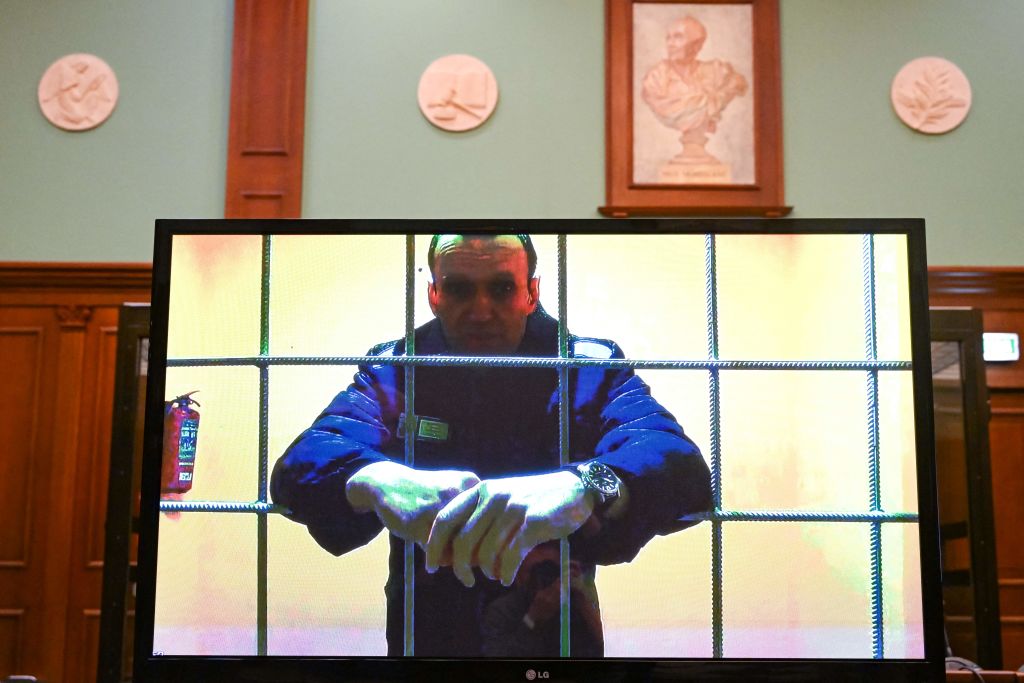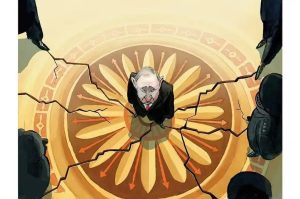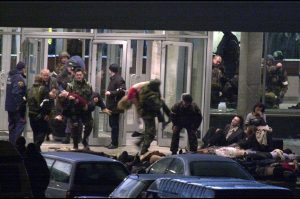Just over three years after he was imprisoned in a Russian penal colony, the Putin critic Alexei Navalny has died. The news was announced by the local administration of Russia’s Federal Penitentiary Service shortly before 2:30 p.m. Moscow time.
In a statement, the prison service said: “In correctional colony No. 3 the convict A.A.Navalny fell ill after a walk and almost immediately lost consciousness. All necessary resuscitation measures were carried out, but did not yield positive results. Emergency doctors confirmed the death of the convict. The causes of death are being established.”
It was not revealed when Navalny is reported to have died. Navalny’s team say they have yet to receive any official confirmation of his death. His lawyer is currently en route to the Polar Wolf colony where he was being kept, with the team promising to convey any updates they have. According to the Russian state news agency TASS, Putin has been informed of his death.
At the time of his death Navalny was serving out a fifteen-day period in a punishment cell. According to his press secretary Kira Yarmush, this was the twenty-seventh time he had been sent into isolation since he was imprisoned — he had, she said, cumulatively spent 308 days of his imprisonment in these punishment cells.
Naturally, speculation is already beginning as to what caused Navalny’s premature death. According to the Russian TV channel RT and the Telegram channel 112, a “detached blood clot” was responsible — with no other details given.
It is too early to say definitively whether Navalny’s death occurred naturally or with the backing of the Kremlin. It is no secret that Navalny has long had a target on his back for his vocal opposition to Putin and his regime. In 2020, Navalny was poisoned with the nerve agent Novichok by FSB agents sanctioned by the Kremlin, and after three years spent in harsh punishment cells, his health had significantly weakened. In court appearances over the past few years he was gaunt and had lost a significant amount of weight.
In December, the forty-seven-year-old disappeared in the system for nearly three weeks after his lawyer was told he was no longer at the penal colony in Vladimir where he was previously being held. Navalny resurfaced on December 26 in the notoriously brutal Polar Wolf colony in the Arctic Circle. Appearing in person in January for the first time since being transferred, he was able to give a little detail about his situation, saying he was “fine” and being kept in conditions “much better than in Vladimir.”
For a long time, Putin was said to fear Navalny so much he refused to use his name when he spoke about him. Many of Navalny’s supporters also believed he had a level of protection due to his fame for speaking out against the Russian president. Sadly that appears to no longer be true.
After Navalny’s imprisonment in 2021, and subsequent extensions of his sentence, hundreds of Russians took to the streets in protest. Circumstances are now different, following the repression introduced by the Kremlin since the invasion of Ukraine. But nevertheless, all eyes will be on Russia to see whether ordinary people believe the Kremlin’s story of how Navalny died — and how they react to the news.
This article was originally published on The Spectator’s UK website.


























Leave a Reply